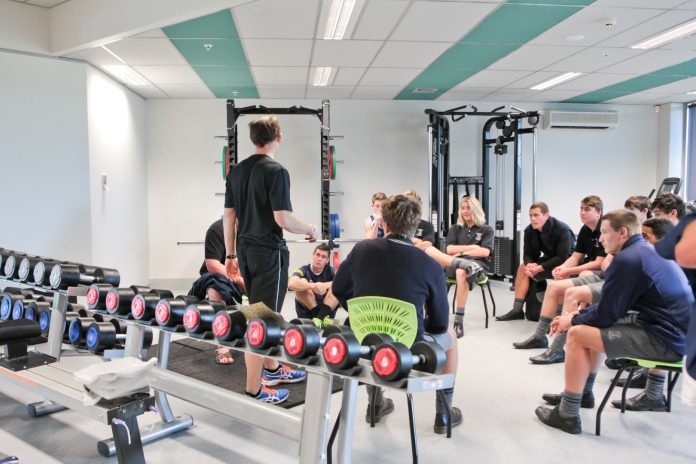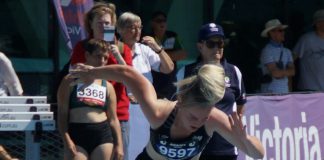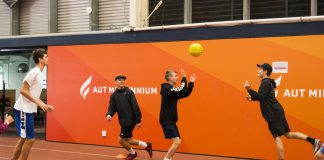Have you ever wondered why some athletes appear to engage much more in certain types of exercise and activities than others? Consider an athlete who trains the house down with a ball in their hand, but doesn’t show any motivation for the strength work in the gym. Or an athlete who runs hard all day long during a game, but isn’t interested in doing the same in the fitness sessions. As a coach, it’s important to appreciate that every athlete brings a unique set of behavioural traits to the sporting environment. It’s your job to figure out what these are, and how to interact and communicate with your athletes accordingly.
Keeping this in mind, here’s an interesting way to look at your athletes that might help you understand and get more out of them. Each athlete will express themselves as one of three types – the ‘hustler’, the ‘thinker’ or the ‘natural’ athlete. Categorise each athlete based on what you know about how they behave in the training environment.
What does each athlete type looks like and what should you focus your coaching on for best performance?
-
The Hustler
This is your work-horse athlete. They love the grind and will always give you everything they’ve got without thinking too much about it. The hustler shines during physically demanding training sessions and in the trenches out on the field.
What to look for: The hustler is typically not the most ‘naturally talented’ athlete in the group. Consequently, they’ve always had to work hard to get the results and have developed a great work ethic because of it. They tend to be the biggest, strongest, or fittest athlete on the team and use their physical attributes to their advantage. The hustler is often the loud outspoken one not shy in taking centre stage but can also be the one plugging away in the shadows.
What to focus on: Use the hustler’s physically prowess to your advantage. Get them to take the lead in the high-intensity training sessions and boost their confidence by celebrating their successes in front of the team. Spend less time explaining ‘why’ to do something and more time letting them get on with doing it. However, watch out for the total amount of exercise load (duration x intensity x frequency) the hustler is racking up. You may need to spend time cutting back the hustler’s training load rather than motivating them to do more.
Favourite words: How (high, much, far, fast)?
-
The Thinker
This is your ‘smart’ athlete. They will be the one asking all the questions as they like to know the “why” for everything they do – sometimes even just for the sake of asking. The thinker shines when a plan B is required during challenging circumstances in training and competition.
What to look for: The thinker likes to analyse what they are doing and doesn’t mind spending extra time making sure things are done right. They like justification for everything they’re asked to do. If they don’t agree with or see the point in something you’ve asked them to do then you will have a tough time getting them to do it. They are typically students of the game and very good at working out what is most critical to the success of themselves and the team.
What to focus on: Spent plenty of time explaining ‘why’ you are doing things, and always have the evidence to back up your reasons for doing something – video can be very effective here. Due to their desire for detail, the thinker can come across as very opinionated (often with good reason). Use this to advantage your coaching and maximise their motivation by including them when designing training plans and strategising tactics for games.
Favourite word: Why?
-
The Natural
This is your ‘naturally gifted’ athlete. The one everybody comments on when watching them play. They typically gravitate to positions of influence on the field and can easily make or break a game.
What to look for: The way the natural moves on the field looks effortless. They’re always in the right place at the right time and appear to have all the time in the world to make a decision. Naturals are spiritual souls who typically don’t like ‘false’ or unnatural training environments (e.g. the gym) because they mess with their ‘flow’. They hesitate when their sport is broken down into skills, drills and movements and would much rather focus on playing and performance.
What to focus on: Just let them play. Try to make everything a game during trainings so that they can find their rhythm and flow. Use small-sided games to develop technical and tactical skills as well as fitness. In environments where this is more difficult (e.g. the gym) try to connect the athlete as much as possible to the task they are working on and their environment by using constraints-based coaching methods.
Favourite word: Play
It is common for athletes to express a dominant behavioural type but be aware that athletes can also cross over into different categories – you’re more likely to see a natural crossed with a thinker though rather than a hustler. And every now and again you’ll see an athlete who sits smack bang in the middle of all three – they’ve got the natural ‘gift’, are a good thinker of the game, and understand the importance of good hustling in training and completion. Take Sonny Bill Williams and Michael Jordan and perfect examples – true legends of their respective games.






































